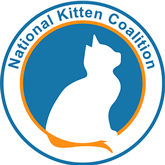C
Calicivirus (kuh-lee-see-vai-ruhs): Feline Calicivirus (FCV) is highly contagious and a major cause of Upper Respiratory Infections (URIs)
Catheterization (kath-uh-tuhr-uh-zay-shuhn: Insertion of a catheter (a flexible or rigid hollow tube employed to drain fluids) into the body, such as urinary bladder catheterization, in which a catheter is inserted into the urethra to permit urine to flow out of the urinary bladder
Cerebellar hypoplasia (seh-ruh-beh-lr hai-puh-play-zhee-uh): A neurologic condition, known as CH or wobbly kitten syndrome, affecting kittens and cats that is most often caused when a pregnant cat is exposed to feline parvovirus, the virus that causes feline panleukopenia, whether from a natural infection or from a vaccination
Cheyletiellosis (ki-la-te-el-lo-sys): A highly contagious skin disease of cats, also called walking dandruff, cause by Cheyletiella mites
Chimera (ky-meer-uh): A cat with two distinct sets of DNA, which occurs when one fetus reabsorbs its fraternal twin while in the womb, resulting in different colors on either side of the face
Chronic (kraa-nik): A condition that persists for weeks, months or a lifetime. An example of a chronic condition is kidney disease
Cleft palate (kleft pal-it): A congenital defect of the palate in which a longitudinal fissure exists in the roof of the mouth
Coccidia (kok-sid-ee-uh): Microscopic, single-celled protozoan parasites that infect the intestinal tract, causing smelly, watery or bloody diarrhea
Coloboma (kaa-luh-bow-muh): A congenital maldevelopment of the eye/s involves the upper eyelid margins of one of both eyes
Colopexy (kol-a-pek-see): A surgery to correct rectal prolapse that attaches the rectum to the inside of the abdominal wall
Colostrum (kuh-los-truhm): The watery fluid rich in antibodies and nutrients secreted by queens during the 24-36 hours after giving birth and before producing true milk
Congenital (kuhn-jen-it-tl): A condition present at birth, such as cryptorchidism and cerebellar hypoplasia, which may be inherited or caused during pregnancy
Congenital hypothyroidism (hahy-puh-thahy-roi-diz-uhm): A disorder of insufficient thyroid hormone in the body, which is important for the development of the nervous and skeletal systems, that may be underreported and not diagnosed since kittens appear normal but die at birth or die as juveniles before symptoms ever become evident
Conjunctiva (kon-juhngk-tahy-vuh): The tissue lining the inner surface of the eyelids and covering the white of the eyes (sclera), also called pink eye
Conjunctivitis (kuhn-juhngk-tuh-vahy-tis): Inflammation of the conjunctiva
Constipation (kon-stuh–pey-shuhn): An abnormal accumulation of feces in the large intestine, which may result in hard, dried feces, straining to defecate and reduced frequency of defecation or absence of feces
Coprophagia (kow-pruh-fay-zhua):The eating of feces, which may be related to certain diseases or behavioral problems
Cornea (kawr-nee-uh): The transparent front part of the eye coverng the iris and pupil that admits light into the eye
Crepitus (kreh-puh-tuhs): A crackling chest sound heard in pneumonia and other lung diseases; the grating sound of two ends of a broken bone rubbing together
Crepuscular (kri-puhs-kyuh-ler): Appearing or active during dawn and dusk; cats are crepuscular animals
Cryptorchidism (kript-awr-ki-diz-uhm): A condition where one testicle or both (testes) don’t descend from the groin area, where they develop before birth, into the scrotum
Cutaneous (kyoo-tey-nee-uhs): Relating to or affecting the skin
Cyanosis (sai-yuh-now-suhs): The bluish tissue discoloration resulting from increased concentration of reduced hemoglobin, a protein inside red blood cells that carries oxygen
Cystitis (si-stahy-tis): Inflammation of the urinary bladder
D
Defecation (def-i-key-shuhn): The act of voiding excrement from the bowels; bowel movement
Dehiscence (dih-his-uhns): Any opening in a wound after surgery, which may be prevented by burying dissolvable sutures
Dehydration (dee-hahy-drey-shuhn): The excessive loss of water and electrolytes (minerals such as potassium, sodium and chloride) that may occur in kittens with inadequate milk intake or excessive fluid losses due to prolonged diarrhea, vomiting or overheating (hyperthermia)
Dermatitis (dur-muh-tahy-tis): Inflammation of the skin, which may be caused by fleas, food allergies or environmental stimuli
Dermatophyte (der-mat-uh-fahyt): A type of skin fungus, such as Microsporum canis, which causes ringworm and especially affects kittens
Diarrhea (dahy-uh-ree-uh): Loose, watery stool that does not hold its form; fluid loss from diarrhea can lead to dehydration or electrolyte imbalance
Digitigrade (dij-i-ti-greyd): Describes animals that stands or walks on their toes, such as cats
Dilated (dai-lay-tuhd): A state of being widened or enlarged, as in dilated pupils caused by short-term fear or a progressive disease such as glaucoma
Dislocation (dis-loh-key-shuhn): The displacement of a body part from its proper position, which may be due to trauma to a bone or be present at birth (congenital diaphragmatic hernia)
Distemper (dis-tem-per): Feline distemper, also known as feline panleukopenia virus, is a deadly virus to which kittens are at highest risk
Distended (dih-sten-did): Swollen or expanded, as may occur when a kitten’s abdomen is enlarged due to spoiled milk replacement formula, intestinal parasites and panleukopenia
Distichia (di-stuh-kai-uh): The condition of having two sets of eyelashes, which often results in injury to the eye’s lining and may require treatment to correct
Dysbiosis (duhs-bai-ow-suhs): An imbalance that can occur in the intestinal bacteria and disrupt the GI tract’s normal functions, which can be life threatening in young kittens
Dyschezia (dis-kee-zee-uh): Difficult or painful defecation, usually associated with hardened feces, and may have many causes, including dehydration and parasites
Dysphagia (dis-fey-jee-uh):The condition in which eating and/or swallowing is difficult, as may occur with cleft palate
Dysphoria (dis-fawr-ee-uh): Extreme anxiety and agitation, which may occur in the 20-30 minutes postoperative period due to drug reactions or pain and be accompanied by thrashing, restlessness, and continuous activity
Dyspnea (disp-nee-uh): Breathing that is difficult or labored, which may be a symptom of Feline Infectious Peritonitis or lower respiratory tract infections
Dystocia (duhs-tow-shuh): An abnormal or difficult birth, which may be due to maternal factors, such as uterine inertia, and/or fetal factors, such as an oversized kitten
Dysuria (dis-yoo-ree-uh): Urination that is painful or difficult and should be treated as a medical emergency in male cats whose narrow urethras can become blocked

